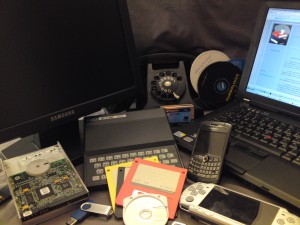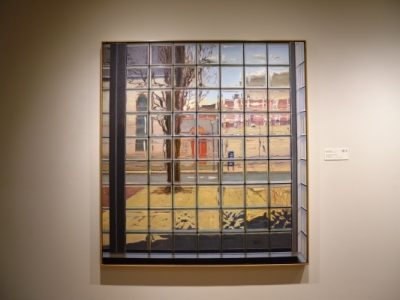Telemedicine

My thyroid was surgically removed, thus I need Synthroid. I have had the same prescription for years and yet I often procrastinate in going to my primary physician, to get the prescription for the blood work, and then make another appointment, to review the results, to receive the prescription for same dosage of Synthroid. I travel a lot unexpectedly, so it is not easy to make and keep an appointment.
Recently, as I saw my Synthroid dwindling away, day by day. I received a call from the pharmacy, informing me that the doctor would not renew my prescription, unless I came in; I became stressed, thinking I need to make an appointment. And then another work related item came up and the next thing I knew, I was out of my medicine. This has happened to me before, and I have gone to urgent care to get a prescription that will tide me over for 30 days, but I did not have to go to Urgent Care this time!
As I was looking at my health insurance to see where I could go, I noticed a tile box, on the web page, stating: “see a doctor anytime”. I clicked on the box and it took me to additional choices that gave me an option of a virtual visit. I thought, this is just for me!
I had more than one option for my virtual doctor’s visit. I looked at the typical wait times and what was required, and then dove in. I even installed an app, and you know how I feel about apps!
The app prompted me with first question asking what I needed, and the second question asked which pharmacy I go to, and the third put me in with a doctor. The app required a face to face meeting with the doctor. I was happy to comply, and within ten minutes, I had my Synthroid prescription. I could not believe the ease of use.
So what is telemedicine? Telemedicine gives a patient the ability to consult with a doctor via two-way video, text, or email. Telemedicine has been around since before the internet and digital communications, it was used in ancient times, with smoke signals to communicate a dangerous disease, announce births or deaths.
While mail and other methods have been used to receive second opinions or for consultative purposes, it would be the invention of the telephone that would connect doctors directly to every patient, nurse, hospital and other emergency personnel in need of their medical advice. The telephone would truly launch a fast path for telemedicine and in 1968, the first 9-1-1 call would be made from Haleyville, Alabama, using a bright red phone, which is now located in the Haleyville Museum. https://en.wikipedia.org/wiki/9-1-1
While telephones would help connect the doctors so that they could listen and give advice, it would be other technology that would provide a major breakthrough in telemedicine. The 1960’s, would also see the first telemedicine clinic from Massachusetts General Hospital MGH, created by Kenneth Bird for travelers at Boston Logan Airport that used a two way audiovisual microwave circuit. At the same time, NASA also used telemedicine to check the astronaut’s health through physiologic monitors.
https://en.wikipedia.org/wiki/Telemedicine#History
Telemedicine which brought about the ability to view images and to discuss results via the phone would give rise to the ability to provide medical care in a war zone, remote scientific stations in the Arctic and Antarctica, and to provide care in rural areas.
The advancements in telemedicine have continued and the results are pushing us farther than we can imagine and may very well keep us all together out of a doctor’s office. Today we have heart monitors, and pace makers which can communicate directly to medical offices. We have insulin pumps that deliver the correct dose of medicine. In fact, over seven million patients today are using remote medical devices for telemedicine and virtual healthcare. Mobile applications, fitness trackers are being incorporated to prevent diseases. Medical information is provided quickly, with real time diagnostic solutions via an app from a digital device.
There is a much needed revolution happening in the healthcare industry. And while I do not like the constant invasion into my privacy, there can be benefits, which if properly configured, can offer a safe and convenient way to stay Connected.






